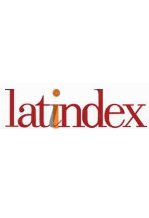ESG: A VALORIZAÇÃO DO SOCIAL PELAS EMPRESAS DE CAPITAL ABERTO NO BRASIL
Keywords:
ESG, Social, Capital Humano, discriminação salarialAbstract
The objective of this work is to investigate whether publicly traded companies in Brazil tend to be more committed to valuing the human capital of their workers, compared to companies from other legal regimes. As a complementary objective, this work investigates whether there is wage discrimination by gender and race within publicly traded companies in the country. To achieve the established objectives, this work uses the RAIS database, which contains complete information on formal workers in Brazil. The results found indicate that workers from publicly traded corporations with higher education receive 194% more than employees without schooling, showing that SAs value the accumulation of schooling. However, the results still indicate that men tend to receive more than women in all legal regimes and that the largest wage gap by race and sex was found in the executive branch. Thus, it is evident that there are gaps to be addressed about gender and racial wage differences within publicly traded companies in the country.
Downloads
References
Amato-Neto, J. (2022). ESG INVESTING: Um novo paradigma de investimentos? São Paulo: Bluncher.
ANUP. (2023). ESG deve mirar em desigualdade racial no mercado de trabalho. Recuperado em 24 de janeiro, 2023, de https://anup.org.br/noticias/esg-deve-mirar-em-desigualdade-racial-no-mercado-de-trabalho
Becker, G. S. (1962). Investment in human capital: A theoretical analysis. Journal of Political Economy, 70(5), 9-49.
Bernardelli, L. V., & Michellon, E. (2019). Trabalho formal na cadeia de produção de carne bovina. Revista de Política Agrícola, 28(1), 18.
Bertão, N. (2023). Salários e oportunidades de trabalho iguais são principais indicadores de equidade de gênero. Recuperado em 24 de janeiro, 2023, https://valor.globo.com/empresas/esg/noticia/2022/03/11/salarios-e-oportunidades-de-trabalho-iguais-sao-principais-indicadores-da-equidade-de-genero.ghtml
Bloomberg. Índice de Igualdade de Gênero 2022 da Bloomberg mostra empresas cada vez mais comprometidas em relatar dados ESG. Recuperado em 24 de janeiro, 2023, https://www.bloomberg.com.br/blog/gei-da-bloomberg-revela-compromisso-maior-das-empresas-em-relatar-dados-esg/
Brandão, I. D. F., Diógenes, A. S. M., & Abreu, M. C. S. D. (2017). Value allocation to stakeholder employees and its effect on the competitiveness of the banking sector. Revista Brasileira de Gestão de Negócios, 19, 161-179.
Brasil, Presidência da República Casa Civil. Lei n° 6.385, de 7 de dezembro de 1976. Recuperado em 24 de janeiro, 2023, https://www.planalto.gov.br/ccivil_03/leis/l6385.htm
Brighenti, J., Jacomossi, F., & da Silva, M. Z. (2015). Desigualdades de gênero na atuação de contadores e auditores no mercado de trabalho catarinense. Enfoque: Reflexão Contábil, 34(2), 109-122.
Broadstock, D. C., Chan, K., Cheng, L. T., & Wang, X. (2021). The role of ESG performance during times of financial crisis: Evidence from COVID-19 in China. Finance research letters, 38, 101716.
Dyer, J. H., & Singh, H. (1998). The relational view: Cooperative strategy and sources of interorganizational competitive advantage. Academy of Management Review, 23(4), 660-679.
Friede, G., Busch, T., & Bassen, A. (2015). ESG and financial performance: aggregated evidence from more than 2000 empirical studies. Journal of sustainable finance & investment, 5(4), 210-233.
Greene, W. (2012). Econometric analysis. (7ª ed.) Pearson.
Halbritter, G., & Dorfleitner, G. (2015). The wages of social responsibility—where are they? A critical review of ESG investing. Review of Financial Economics, 26, 25-35.
Hill, J. (2020). Environmental, Social, and Governance (ESG) Investing: A Balanced Analysis of the Theory and Practice of a Sustainable Portfolio. New York: Academic Press.
Irigaray, H. A. R., & Stocker, F. (2022). ESG: novo conceito para velhos problemas. Cadernos EBAPE. BR, 20, 1-4.
Kastner, T. Conheça o índice ESG de equidade racial. Recuperado em 24 de janeiro, 2023, https://vocesa.abril.com.br/sociedade/conheca-o-indice-esg-de-equidade-racial
Khan, M., Serafeim, G., & Yoon, A. (2016). Corporate sustainability: First evidence on materiality. The accounting review, 91(6), 1697-1724.
Kotsantonis, S., & Serafeim, G. (2020). Human Capital and the Future of Work: Implications for investors and ESG integration. Journal of Financial Transformation, 51, 115-130.
Manolo Chávez, N., & Ríos, H. (2014). Discriminação salarial por gênero" efeito teto de vidro". Caso sete áreas metropolitanas da Colômbia. Dimensión empresarial, 12(2), 29-45.
Ogundari, K., & Awokuse, T. (2018). Human capital contribution to economic growth in Sub-Saharan Africa: does health status matter more than education?. Economic Analysis and Policy, 58, 131-140.
Passos, L., & Machado, D. C. (2022). Diferenciais salariais de gênero no Brasil: comparando os setores público e privado. Revista de Economia Contemporânea, 26.
Prestes, A. F., & Bezerra, F. M. (2019). Desigualdade salarial entre gêneros: análise por setor e região do Paraná. Economia & Região, 7(2), 29-45.
RAIS. Relação Anual de Informações Sociais. Microdados RAIS e CAGED. Recuperado em 24 de janeiro, 2023, http://pdet.mte.gov.br/microdados-rais-e-caged
Redecker, A. C., & Trindade, L. D. M. (2021). Práticas de ESG em sociedades anônimas de capital aberto: Um diálogo entre a função social instituída pela lei n 6.404/76 e a geração de valor. Revista Jurídica Luso Brasileira, 7(2), 59-125.
Rivera, J. J., Bigne, E., & Curras-Perez, R. (2016). Effects of corporate social responsibility perception on consumer satisfaction with the brand. Spanish Journal of Marketing-ESIC, 20(2), 104-114.
Schultz, T. W. (1961). Investment in human capital. The American Economic Review, 51(1), 1-17.
Downloads
Published
How to Cite
Issue
Section
License
Copyright (c) 2023 Luan Vinicius Bernardelli

This work is licensed under a Creative Commons Attribution-NonCommercial 4.0 International License.
The copyright of papers published in the Revista de Economia Mackenzie belongs to the authors, who grant to the Mackenzie Presbyterian University the exclusive rights to publish the content. Total or partial reproduction is prohibited without due authorization of the Editorial Committee, except when it is previously authorized.










